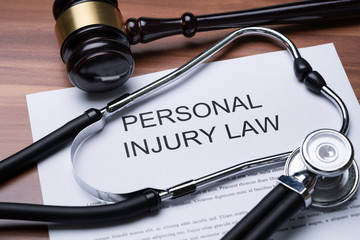
It has become not only worrisome but also heartbreaking, the level of recuurence of the incidence of negligence among medical Practitioners which includes: Surgeons, Pharmacists, Dentists, Nurses and other support staffs in Nigeria. This is not to say that the medical profession is not worth some credit over its performance in deserving circumstances and its attendant contributions to the Nigerian Health sector.
Perhaps, what may be more worrisome, is the fact that the survival of a patient is dependent on or predicated upon the quality of care that such a patient receives not only from a Medical Doctor, or team of Doctors as the case may be, but also from other support staffs whose primary responsibility is to treat her patients.
In Nigeria, the attitude of an average medical attendant is scary and is completely out of touch with the medical realities in sister countries. The reality is antithetical to the aphorism displayed in some Hospitals: ‘’we care, God heals’’.
While the accuracy or otherwise of that statement is not in contention, it is pertinent to ponder on how much ‘’care’’ medical practitioners owe their patients before the healing is left in the hands of the most Supreme being.
WHAT IS MEDICAL NEGLIGENCE?
Medical negligence could be defined as an improper, unskilled, or negligent treatment of a patient by a Physician, Dentist, Nurse, Pharmacist, or other health care professional.
It is important to note that whilst medical negligence is generally used in reference to Doctors, other health care providers such as Nurses, Pharmacists, laboratory attendants and any other health care provider could be liable for medical negligence. Some of which are:
- Failure to attend promptly to a patient requiring urgent attention when the practitioner is in a position to do so.
- Gross ineptitude in the assessment of a patient.
- Making an incorrect diagnosis particularly when the clinical features are so glaring that no reasonable skillful practitioner could have failed to notice them.
- Failure to advise, or proffer wrong advice on the risk involved in a particular operation or course of treatment, especially if such an operation or course of treatment is likely to result to serious side effects like deformity or loss of organ.
- Failure to obtain consent of the patient (informed or otherwise) before proceeding on any surgical procedure or course of treatment, when such consent is required.
- Making a mistake in treatment e.g. amputation of the wrong limb, inadvertent termination of a pregnancy, prescribing the wrong drugs, in error for a correctly diagnosed ailment etc.
- Failure to transfer or refer a patient in good times when such transfer or referral is necessary.
- Failure to do anything that ought reasonably to have been done under any circumstance for the good of the patient.
- Failure to see a patient as often as his medical condition warrants or to communicate with the patient or his relation as may be necessary with regards to any developments, progress with the patient.
EXAMPLES OF NEGLIGENCE:
Instances of the above listed are endless in Nigeria and has become more of a song in the hospitals as patients are forced to live in utter apprehension especially in public hospitals. Consequently, patients die on a daily basis in Nigerian public hospitals and are left without the necessary medical negligence compensation even though no amount of compensation can equate the life of a loved one, our medical negligence lawyers can help bring such perpetrators to book as most medical practitioners now act with utter impunity knowing they can get away with it .
PROOF OF MEDICAL NEGLIGENCE:
Negligence involves the existence of four basic elements, which must be proved before liability to pay damages is established. These elements of negligence were stated in the case of FIRST BANK NIGERIA PLC V BANJO to include:
- That the defendant owes the plaintiff a duty of care.
- That the defendant owes the plaintiff a duty to exercise that due care.
- That the defendant failed to exercise that that care and
- That the defendant’s failure was the cause of the injury to the plaintiff.
In the case of CHIN KEOW V GOVERMENT OF MALAYSIA, a Doctor failed to make any inquiry about the medical history of a patient, which led to her death within one hour of being injected with Penicillin. The Lords of the judicial committee of the Privy Council overturned the decision of the federal high court of Malaysia and noted that he failed in his duty to make appropriate inquiry before causing the penicillin injection to be given which was the cause of the death of the deceased. Had any inquiry been made, he would have been aware that the deceased had previously suffered an adverse reaction due to an injection which led to an endorsement of her out-patient card of the warning ‘’allergic to Penicillin’’. The doctor was held liable for negligence. Our team of medical negligence lawyers can help prove a case of medical negligence should you or your loved one experience such in any medical health center.
THE RIGTS OF A PATIENT:
- A complaint could be lodged at the medical and dental council of Nigeria for appropriate redress. The medical and dental practitioners’ Act provided for an investigation tribunal and where a prima facie case is established, a disciplinary tribunal could be set up who would in turn mete out the deserving sanctions to the erring Doctor
- The rule at law is that, where there is a wrong, there is a remedy. Thus, a patient whose right is infringed upon could seek redress by instituting an action in court with the help of our medical negligence lawyers.
- A report could also be made at the police station who could prosecute where investigation reveals gross negligence or where death has resulted there from.
- A faster means is to have recourse to alternative dispute resolution. (ADR) Alternative dispute resolution reduces cost and bypasses lengthy law suits.
CONCLUSION:
In view of the foregoing, there is a compelling need for government to shift its focus to our health sector. This need cannot be overemphasized since the consequences of medical negligence leaves a lot to be desired. More so, it would be recommended that just as legal practitioners who work with various governmental agencies are prohibited from venturing into private practice, same should apply to medical practitioners in order to facilitate better health delivery system and in turn reduce the death and other inconceivable health problems associated with medical practice.
Contact us now if you are a victim of medical negligence so our team of expert medical negligence lawyers can help you get the desired compensation for your loss.





